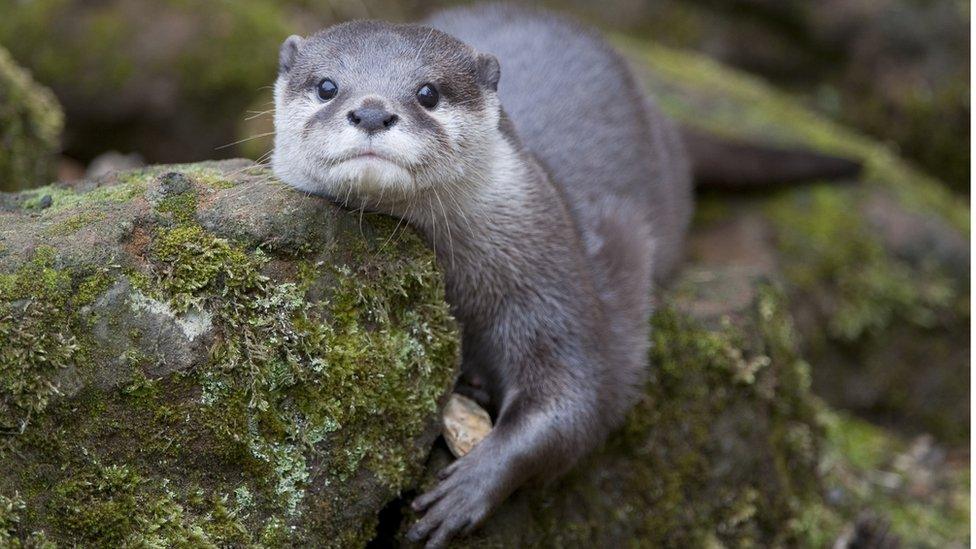Otters can learn to solve puzzles to get food, scientists discover
- Published
- comments

Did you know? An Asian short-clawed otter's ears are small and, like their nostrils, can be closed while the animal swims under water
It's not a secret that otters are cute, but who knew they were so clever?
Researchers at The University of Exeter have found that otters can teach one another how to solve puzzles.
The study showed that Asian short-clawed otters learn from each another when solving puzzles to get food.
The researchers called it 'social learning' because once one otter had figured the puzzle out - their closest 'friend' would then follow.
What were the puzzles?
The researchers gave the otters different types of plastic containers that had meatballs in them, to get them interested. They were given the puzzles twice, a few months apart.
The plastic puzzles could be opened by twisting or pulling a particular lid or handle.
When they were given to the otters the second time, they solved the puzzles 69% faster!
This, said the researchers, suggests that not only do otters learn from one another, but they also have long-term memory.
The researchers also studied how the otters interacted with one another before they gave them the puzzles. By knowing which otters spent more time together, they were able to see how that helped them solve the puzzles.
Why is this good news for otters?
Numbers of Asian short-clawed otters are declining in the wild, because of "overfishing and pollution affecting the crustaceans and small fish they feed on" according to lead author of the study, Alex Saliveros.
He said: "Our study is the first to show evidence of social learning and long-term memory in Asian short-clawed otters - which may be good news in terms of their adaptability and future survival."
Did you know? A group of otters in the water is called a raft. Out of the water, a group of otters is called a romp, a lodge, a bevy, or a family.
The Asian small-clawed otter is the world's smallest otter species, and mainly lives in mangrove swamps and freshwater wetlands in south and southeast Asia.
They are facing ongoing habitat losses and it is hoped that these studies, which show they can adapt mean they'll be able to survive.
Senior author Dr Neeltje Boogert said: "We previously found that smooth-coated otters learn from each other. Now that we know Asian short-clawed otters do so as well, we can start investigating how we might transmit critical survival information regarding new foods and predators through wild otter groups more generally."
- Published11 January 2012
- Published28 March 2019
